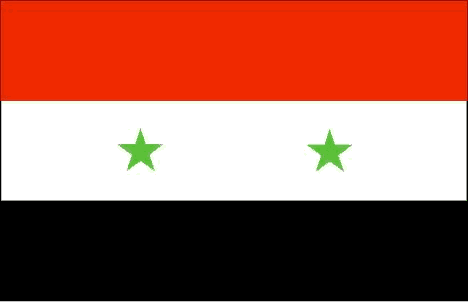Login form
Customs of Syria
Marriage and Family
 Most people are careful to choose a potential marriage partner of whom the family approves. In fundamentalist circles, courtship practices follow rigid traditional rules, and parents play a dominant role in selecting marital partners for their children.
Most people are careful to choose a potential marriage partner of whom the family approves. In fundamentalist circles, courtship practices follow rigid traditional rules, and parents play a dominant role in selecting marital partners for their children.
Most people live with or near the extended family. Syrians place a high priority on mutual support and acting in the best interests of the family and its reputation; the majority of social activities are arranged on a family basis. The father is usually considered the undisputed head of the family. The elderly are shown particular respect.
Eating
Syrian cuisine is similar in style to that of other Muslim countries in
It is considered good manners to decline an offer of food or drink twice before accepting, but it is impolite to refuse the offer completely. Food should be eaten with the right hand, although on formal occasions Western utensils may be used. During the month of Ramadan, Muslims fast from sunrise to sunset, eating and drinking only after sundown. In public, non-Muslims are expected to conform with Muslim practices.
Socializing
Syrians welcome people with an outstretched hand while saying Marhaba (“Hello”). When greeting a man, one may also say Keef haalak? (“How are you?”) to inquire about the other person’s health. When greeting a woman, one says Keef haalek? Men may embrace each other in greeting, depending on the degree of their relationship, and female friends exchange kisses on both cheeks.
Syrians are somewhat reserved about inviting nonfamily members to their homes. It is considered inappropriate to discuss business at home and Syrians often entertain business acquaintances at a private club or restaurant, where the host expects to pay the bill.
Recreation
Socializing with family or friends is the most common recreational activity. Many families own videocassette recorders (VCRs) and enjoy watching films or television, although few people go to the movies. Soccer is the most avidly followed sport. Water sports (on the coast) and basketball (especially among schoolboys) are also popular.
Holidays and Celebrations
Official holidays include New Year’s Day (1 January), Revolution Day (8 March), Labor Day (1 May), Martyrs’ Day (6 May), Egyptian Revolution Day (23 July), and Libyan Revolution Day (1 September).
The most important Islamic holidays (based on the Islamic lunar calendar) include Eid al-Fitr (the three-day feast at the end of the month of Ramadan), Eid al-Adha (Feast of the Sacrifice, which is held during the annual pilgrimage to Mecca (Makkah) and celebrates Abraham’s willingness to sacrifice his son), the Birth of the Prophet Muhammad (25 November), and Ashura (the Shiite Day of Atonement).
Christian groups celebrate Easter and Christmas according to their various traditions. For example, Armenian Orthodox Christians celebrate Christmas on 6 January, while other Christians celebrate it on 25 December.
Source: Encarta Interactive World Atlas

